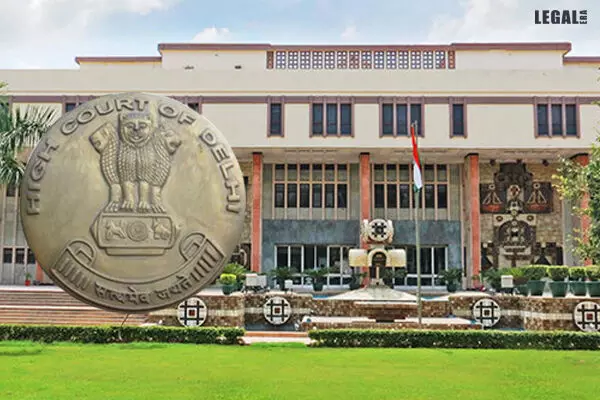- Home
- News
- Articles+
- Aerospace
- Agriculture
- Alternate Dispute Resolution
- Banking and Finance
- Bankruptcy
- Book Review
- Bribery & Corruption
- Commercial Litigation
- Competition Law
- Conference Reports
- Consumer Products
- Contract
- Corporate Governance
- Corporate Law
- Covid-19
- Cryptocurrency
- Cybersecurity
- Data Protection
- Defence
- Digital Economy
- E-commerce
- Employment Law
- Energy and Natural Resources
- Entertainment and Sports Law
- Environmental Law
- FDI
- Food and Beverage
- Health Care
- IBC Diaries
- Insurance Law
- Intellectual Property
- International Law
- Know the Law
- Labour Laws
- Litigation
- Litigation Funding
- Manufacturing
- Mergers & Acquisitions
- NFTs
- Privacy
- Private Equity
- Project Finance
- Real Estate
- Risk and Compliance
- Technology Media and Telecom
- Tributes
- Zoom In
- Take On Board
- In Focus
- Law & Policy and Regulation
- IP & Tech Era
- Viewpoint
- Arbitration & Mediation
- Tax
- Student Corner
- AI
- ESG
- Gaming
- Inclusion & Diversity
- Law Firms
- In-House
- Rankings
- E-Magazine
- Legal Era TV
- Events
- News
- Articles
- Aerospace
- Agriculture
- Alternate Dispute Resolution
- Banking and Finance
- Bankruptcy
- Book Review
- Bribery & Corruption
- Commercial Litigation
- Competition Law
- Conference Reports
- Consumer Products
- Contract
- Corporate Governance
- Corporate Law
- Covid-19
- Cryptocurrency
- Cybersecurity
- Data Protection
- Defence
- Digital Economy
- E-commerce
- Employment Law
- Energy and Natural Resources
- Entertainment and Sports Law
- Environmental Law
- FDI
- Food and Beverage
- Health Care
- IBC Diaries
- Insurance Law
- Intellectual Property
- International Law
- Know the Law
- Labour Laws
- Litigation
- Litigation Funding
- Manufacturing
- Mergers & Acquisitions
- NFTs
- Privacy
- Private Equity
- Project Finance
- Real Estate
- Risk and Compliance
- Technology Media and Telecom
- Tributes
- Zoom In
- Take On Board
- In Focus
- Law & Policy and Regulation
- IP & Tech Era
- Viewpoint
- Arbitration & Mediation
- Tax
- Student Corner
- AI
- ESG
- Gaming
- Inclusion & Diversity
- Law Firms
- In-House
- Rankings
- E-Magazine
- Legal Era TV
- Events
Delhi High Court: Assessment Order Cannot Be Directed Against Only One Of The Legal Heirs Of Deceased Assessee

Delhi High Court: Assessment Order Cannot Be Directed Against Only One Of The Legal Heirs Of Deceased Assessee
The Delhi High Court while adjudicating a writ petition has set aside the impugned assessment order passed by the Income Tax Department and observed that an assessment order cannot be directed against only one of the legal heirs of a deceased assessee.
The division bench of Justices Rajiv Shakdher and Girish Kathpalia were dealing with a matter assailing notice dated 6 April, 2021, issued by the Income Tax department under Section 148 of the Income Tax Act, 1961 wherein the Respondent solely addressed the order to Darpan Kohli being the son of the Deceased Kuldip Kohli, leaving behind others who were the surviving family members of the deceased/assessee.
The petitioners claimed to be the legal heirs of the deceased assessee, Kuldip Kohli. The petitioner received an aggrieved Reassessment Notice after the date of his death in the name of a deceased person or deceased assessee.
The respondent passed the assessment order against the deceased assessee on his PAN without bringing on record all his legal heirs and/or transferring the proceedings to their PAN.
Senior Advocate M Sufian Siddiqui appearing for the Petitioners argued that after the demise of the deceased/assessee i.e., Mr. Kuldip Kohli, the Respondent errored in initiating proceedings by way of directing Reassessment notice in the name of the deceased/Assessee to the Petitioner without covering all the legal heirs on record. in ignorance of the facts available on record, the scrutiny proceedings have been wrongly conducted in the name of the deceased assessee on his PAN without bringing on record all his legal heirs or representatives as per the law.
The Court categorically noted that the Respondent was aware of the factum of death of Mr. Kuldip Kohli and that the proceeding had been attended by Petitioner no.1, i.e., Mr Darpan Kohli and since this fact came to the knowledge of the Respondent, the impugned assessment order, although addressed to the deceased/assessee, adverted to only one of the legal heirs, i.e., Darpan Kohli/petitioner no.1.
Recognizing the grave error in the assessment order, the Delhi High Court has unequivocally declared that the rights and interests of all legal heirs must be considered and protected.
Accordingly, the Court set aside the assessment order and directed the AO to issue notice to the petitioners and grant them the opportunity of a hearing.



